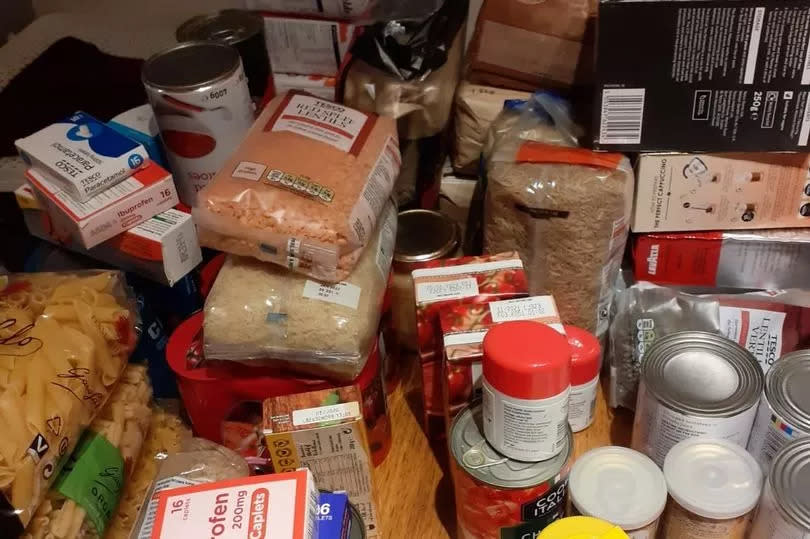Every UK household told to store tinned food and bottled water for 'emergency'
The public is being urged to stock up on bottled water, spare batteries, tinned food, and wind-up torches to "get prepared for emergencies," according to new government advice.
After the experience of recent years, with a global pandemic, local lockdowns, war, and empty shelves in supermarkets, few people will need reminding of how quickly life can be turned upside down in a major emergency - but how many of us are ready for when the next disaster strikes?
A new government website revealed by Deputy PM Oliver Dowden, called "Prepare", has been launched to give advice on what to do in case of a major emergency "caused by severe weather or other natural hazards, by deliberate actions, or as a result of accidents or infrastructure failure." In addition to making plans for floods, power outages, and other disasters, it details how to "prepare for emergencies and the disruption they cause."
READ MORE: Martin Lewis gives interest rate verdict as inflation falls but target 'not hit'
The Prepare website details a wide range of activities that Brits can do to make sure they aren't caught out, from planning home escape routes to deciding on a nearby meeting point "for situations where you might not be able to return home."
In order to prepare, the government advises households to put together an "emergency kit" in case disaster strikes, with nine essential items. If the worst happens, you might have the odd water bottle lying around, but do you have as much as 10 litres of water for each person to use, per day?
Deputy PM Dowden says the measures are "about sensible safeguards, not stockpiling" and the website is there to offer "practical information for households to make those preparations" for threats listed on the government's national risk register.
What you need in your emergency kit

Battery or wind-up torch – torches are safer than candles.
Portable power bank for charging your mobile phone.
Battery or wind-up radio to get updates during a power cut – a car radio can be used, however in severe weather it might be safer to stay inside.
Spare batteries for torches and radio and a backup battery for any medical equipment you rely on.
A first aid kit (or some first aid items) including items such as waterproof plasters, bandages, a thermometer, antiseptic, eyewash solution, sterile dressings and gloves, medical tape for dressings, and tweezers.
Hand sanitiser and wet wipes for hygiene purposes when the water is off.
Bottled water – there is no standard figure for this as emergencies can vary in duration and people use different amounts. A minimum of 2.5-3 litres of drinking water per person per day is recommended by the World Health Organisation for survival. 10 litres per person per day will make you more comfortable by also providing for basic cooking and hygiene needs. Additional water might be needed to make up baby formula, for medical devices and for pets.
Non-perishable food that doesn’t need cooking, such as ready-to-eat tinned meat, fruit or vegetables (and a tin opener). As with water, how much you need will vary based on your own circumstances. Don’t forget food for pets.
Baby supplies such as nappies and baby formula – ready made or ‘ready-to-feed’ formula is best as you may not be able to boil water.
It would be expensive to get all of the essential emergency kit items at once, so the government advises "just add to your emergency kit when you are able and build it up over time."

 Yahoo News
Yahoo News 
